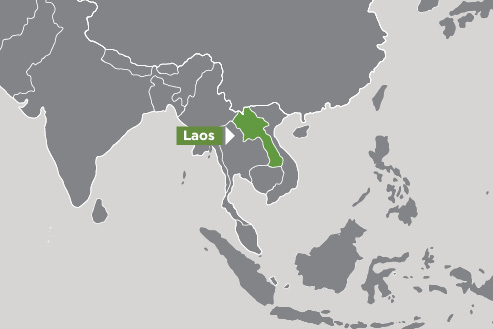Overview
This project aimed to identify the drivers of food insecurity in the Northern Uplands of Laos and providing evidence that can guide the scaling-up of interventions aimed at improving the food security status of vulnerable households in the region.
Despite strong economic growth and reduced poverty rates during the last decade, the prevalence of food insecurity in Laos remains largely unchanged, and chronic malnutrition rates are still high. Food insecurity is especially prevalent in the country’s Northern Uplands.
The drivers of food insecurity are largely unknown. Also unknown is how current policy priorities to promote commercial agriculture will affect (in positive or negative ways) the traditional food security strategies adopted by smallholders. As a result of these gaps in knowledge, it is difficult to define effective interventions that link economic development with improved food security.
The project addresses this research need and directly contributes to two pillars of the country’s Ministry of Agriculture and Forestry’s development plan: “Food Security” and “Sustainable Development of Northern Uplands”.
Project outcomes
- Improved research skills in partner organisations through on-the-job training of researchers.
- Greater capacity in: soil mapping; ethnographic research; analysis of value chains and market structure; design of research (including design of survey instruments and protocols); impact evaluation; and analysis and communication of research results.
- Greater understanding of the relation between the management of natural resources and food insecurity through the quantification of the importance of environmental conditions (soil capability, rainfall) on food availability at local level.






